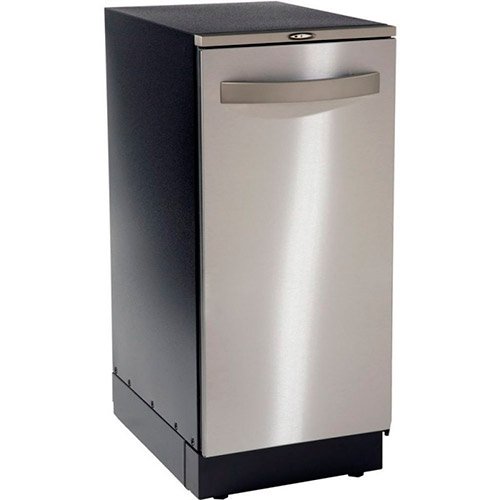Trash compactors are incredibly useful appliances for reducing the volume of household waste, making it easier to manage and dispose of garbage. However, like any other electrical device, trash compactors are prone to wiring and electrical issues that can affect their performance or even pose safety hazards. While some problems with trash compactors can be resolved through basic troubleshooting, wiring, and electrical issues often require professional attention to avoid further complications.
Common Wiring and Electrical Issues in Trash Compactors
Trash compactors, like other kitchen appliances, depend on a reliable electrical connection to function properly. When issues arise with the wiring or electrical components, the unit may fail to operate altogether or exhibit warning signs that something is wrong. Below are some of the most common electrical problems associated with trash compactors:
1. Power Supply Issues
One of the most basic electrical problems that can affect a trash compactor is a disrupted power supply. This may be due to a tripped circuit breaker, a blown fuse, or loose wiring within the appliance. If your trash compactor won’t turn on, it’s worth checking your home’s electrical panel to see if the breaker associated with the compactor has tripped.
However, if the breaker keeps tripping, there may be a deeper electrical issue with the compactor, such as an internal short circuit, faulty wiring, or a defective motor. These problems can’t be easily identified or fixed without the proper tools and knowledge, making it crucial to call a professional for diagnosis and repair.
2. Faulty Switches and Controls
Trash compactors rely on various switches and control mechanisms to operate. The power switch, start switch, and door switch are all crucial components that control the unit’s function. If one of these switches is faulty, it can prevent the compactor from working.
For example, if the door switch fails, the compactor may not start because the appliance detects the door is open, even when it’s securely closed. Wiring issues within these switches can cause inconsistent operation, such as the compactor turning on and off randomly. If you suspect an issue with the switches or controls, it’s best to call a professional electrician or appliance technician to handle the repair safely.
See Also: The Importance of Addressing Minor Fiberglass Pool Damage Before It Gets Worse
Why You Should Call a Professional for Electrical Issues
While it may be tempting to troubleshoot and repair minor electrical problems yourself, dealing with wiring and electrical components requires specialized knowledge and experience. Here’s why it’s essential to leave electrical repairs to the professionals:
1. Safety First
The primary reason to call a professional expert in trash compactor repair in Atlanta when dealing with wiring and electrical issues is safety. Electrical appliances carry the risk of electric shock, fire, or injury if not handled correctly. Even turning off the power doesn’t guarantee safety if you lack the proper tools and expertise to diagnose and fix the problem.
Professional technicians are trained to identify electrical hazards, ensuring repairs are completed without risk to you or your home. They follow strict safety protocols, including the use of insulated tools and proper grounding techniques, to prevent accidents.
2. Accurate Diagnosis
Electrical problems in trash compactors can have multiple causes, and identifying the root issue can be tricky without the right equipment and training. A professional repair technician can accurately diagnose the problem using specialized diagnostic tools that homeowners typically don’t have access to.
By pinpointing the exact cause of the electrical issue, a professional can ensure that the repair is effective and that other potential problems are addressed before they become serious.
3. Preventing Further Damage
Attempting a DIY repair on a trash compactor’s wiring or electrical components can lead to further damage if done incorrectly. For example, miswiring the unit can cause short circuits, motor damage, or even create safety hazards like electrical fires. A professional technician has the experience to avoid such mistakes, ensuring that the repair doesn’t lead to additional problems.
In addition, certified technicians often provide warranties on their repairs, giving you peace of mind that the problem has been properly addressed and that any future issues will be covered.
4. Saving Time and Money
While it may seem cheaper to attempt repairs yourself, improper handling of electrical issues can lead to costly consequences. Incorrect repairs can cause more damage to your trash compactor, resulting in the need for a complete unit replacement or expensive parts.
Hiring a professional from the start can save you time, money, and frustration. Professionals can resolve the issue quickly, ensuring your trash compactor is up and running again without the risk of additional complications.
Conclusion
Electrical and wiring issues in a trash compactor can be serious, potentially leading to malfunctions, property damage, or even injury. While it may be tempting to attempt DIY repairs, the complexity and risks involved make it essential to call a professional technician for help.
By hiring a professional, you ensure that the problem is accurately diagnosed, safely repaired, and resolved in a way that prevents further damage or safety hazards. When dealing with electrical issues in your trash compactor, it’s always better to be safe than sorry.
See also Yasir Naeem Hunter college: What’s Unknown?
FAQs:
What should I do if my trash compactor won’t turn on?
First, check if the circuit breaker has tripped. If the breaker is fine and the compactor still won’t turn on, call a professional for diagnosis and repair.
Can electrical issues in a trash compactor cause a fire?
Yes, wiring damage or short circuits can lead to electrical fires. If you notice sparks, burning smells, or overheating, turn off the power and contact a professional.
Is it safe to repair a trash compactor’s wiring myself?
Hiring a professional ensures safety and proper handling of the wiring issues.



